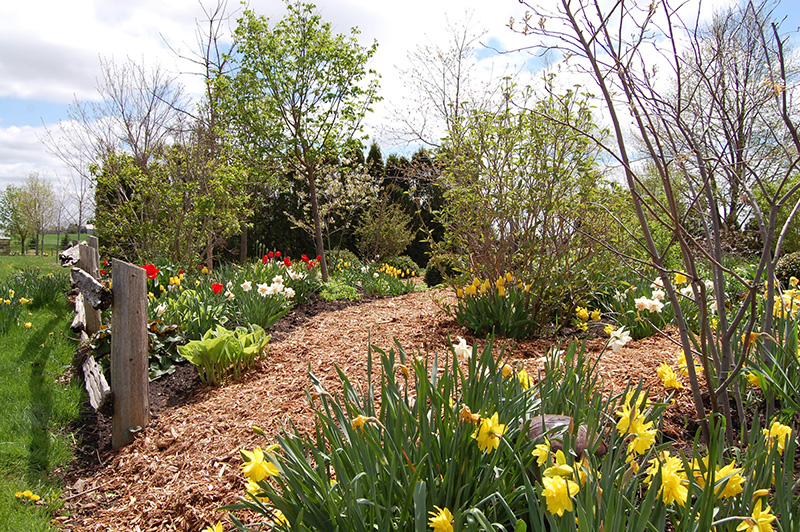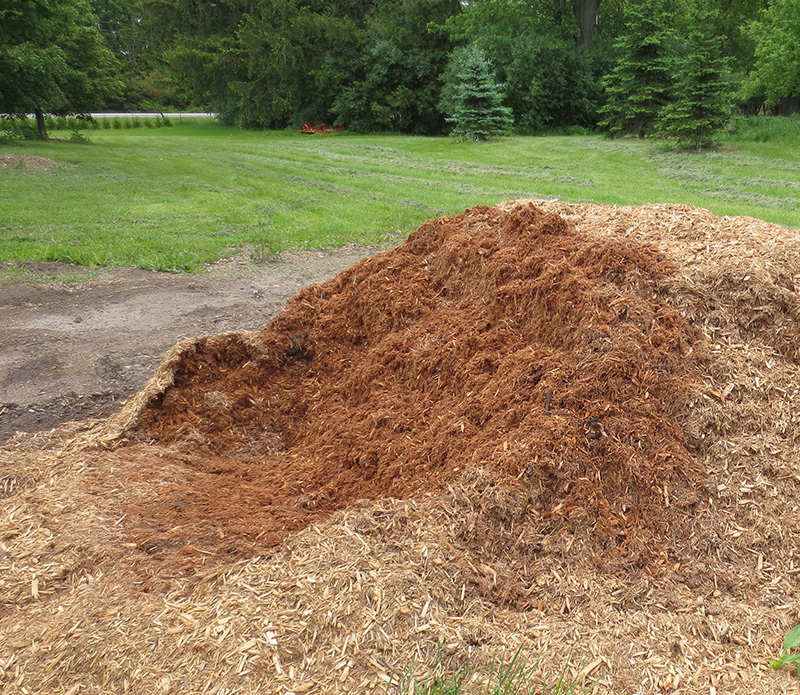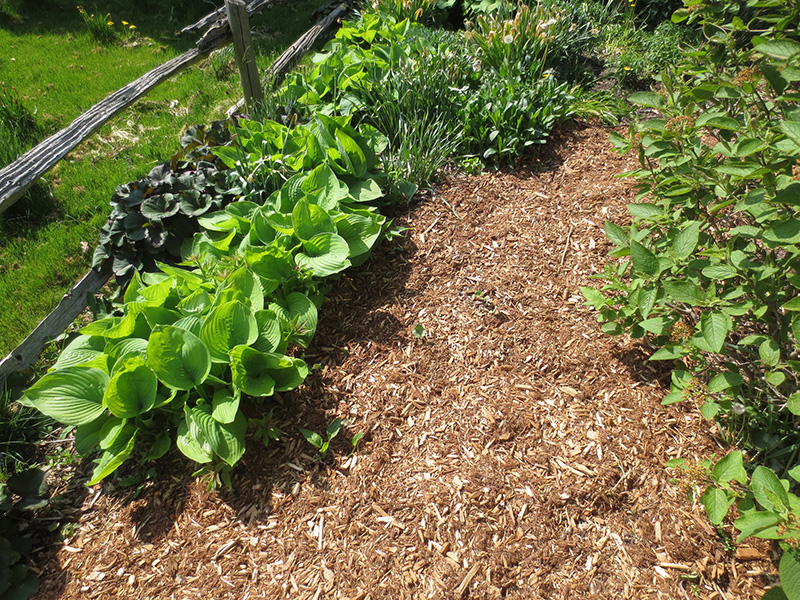The Miracle of Mulch
By Mark and Ben Cullen
www.markcullen.com
We believe that 90 percent of our gardening success is rooted in proper ground preparation. Without a doubt, mulch is a major part of each planting procedure. Mulching with natural materials is very beneficial and serves so many different purposes that it is hard not to make it our number one garden rule.

Studies have shown that mulching reduces evaporation from the soil by up to 50 per cent. Evaporation can be particularly high in hot, dry and windy conditions, but can be a problem in all gardens. Mulch can also help if too much water or rain is a problem. It will improve poorly draining soil over time as it breaks down.
You can plant directly into some organic mulches rather than in the soil preventing your plants from having wet feet during a rainy spell.
The “insulating” effect of mulch is often overlooked even by experienced gardeners, yet it can be a real lifesaver for your plants, particularly shallow rooted perennials.
A layer of mulch keeps the soil cooler on hot days and warmer on cool days, meaning more gradual shifts in soil temperature. In summer, mulch can keep the ground cooler by as much as 6°C (11°F). This is particularly useful in very sunny, hot spots in the garden where high soil temperatures can create drying conditions that damage the roots, especially of shallow-rooted or newly planted plants.
Mark’s favourite mulch is shredded pine or cedar bark.

Apply six to eight centimeters (two to three inches) of this all-natural mulch over the surface of the soil in any part of your garden. It knits together when dry, isn’t washed or blown away and it smothers weeds very effectively. Once spread, the fibres knit together, forming a blanket that stays in place but still allows water to percolate through. After two to four years, it will begin to break down, adding valuable organic matter to the soil. Then you simply spread another layer over the bed.

An even layer 6 to 8 cm deep of mulch will help to reduce weeds in the garden. It allows your garden plants to compete with weeds and makes it easier to remove those weeds which do appear. Mulching can reduce weeding by up to 95% in the first year.
Heard enough? Fact is, it does not matter what growing zone in Canada you live, mulching provides many benefits. Perhaps the main benefit is providing you with more time to do the things you enjoy, including hanging in the hammock.



